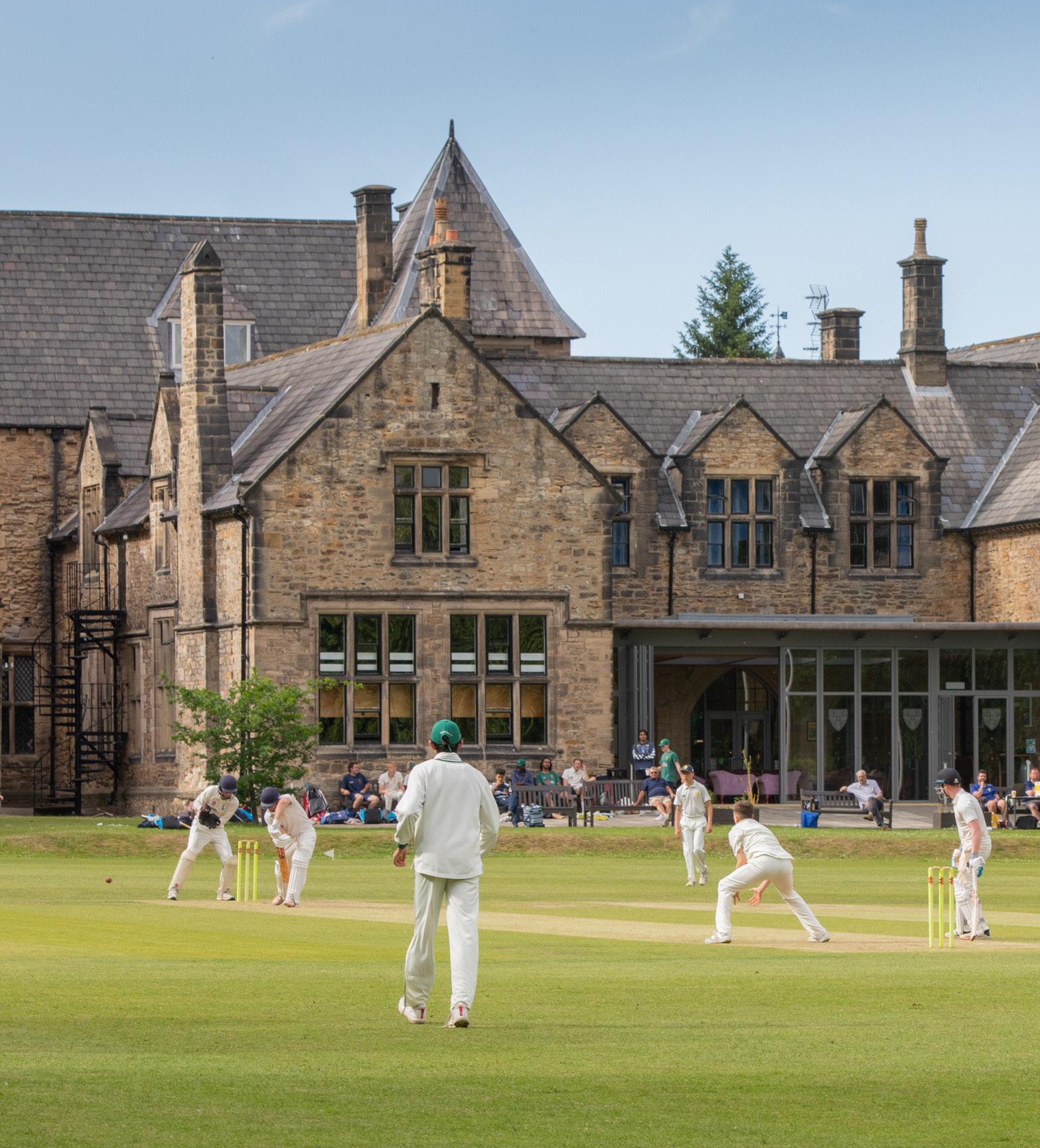

Confidence for Life. Respect for All.
Pupils demonstrate an extremely high level of achievement in their academic studies and through their co-curricular commitments. This reflects the successful realisation of the school’s ambitious aims to cultivate in pupils a desire to succeed in all that they attempt.
- ISI Inspection Report (2023)
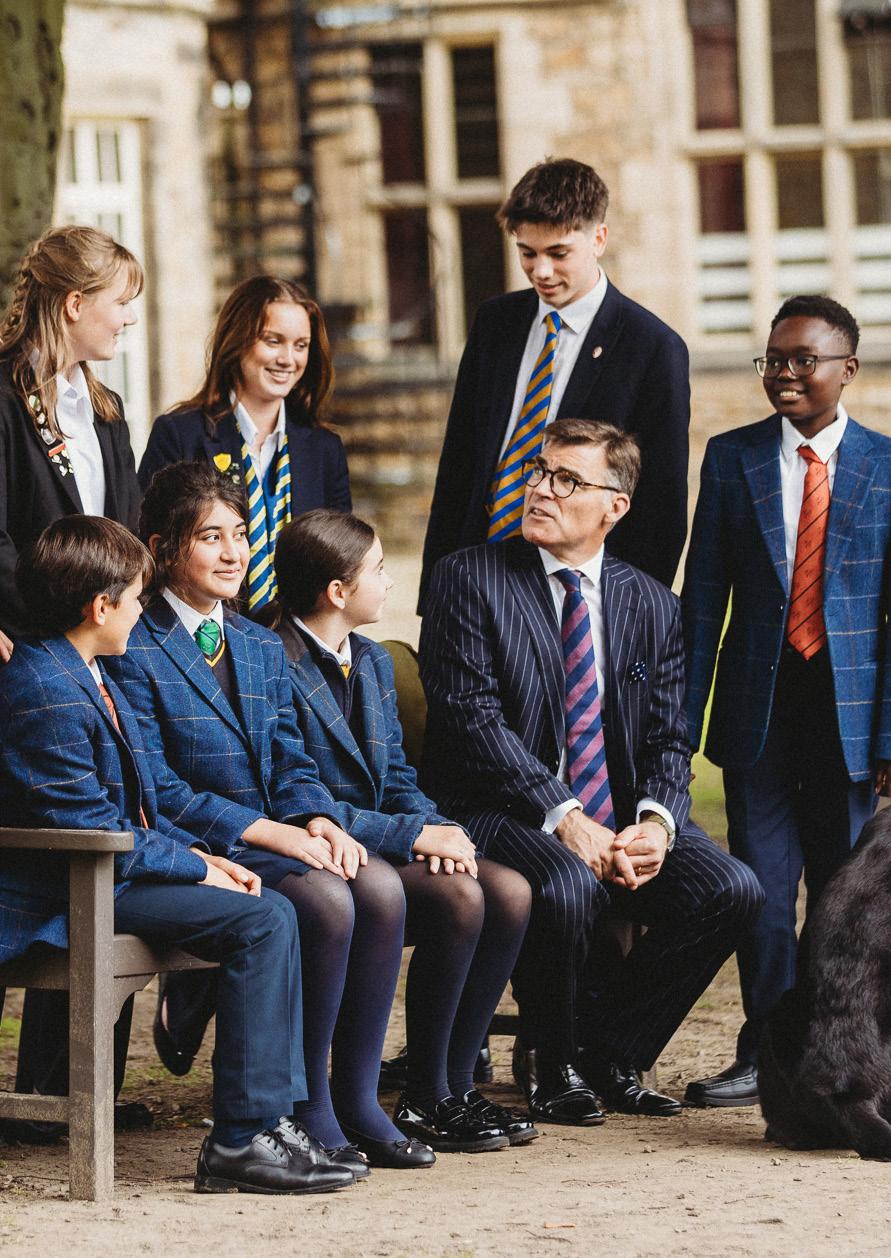
Years 7-9
Curriculum: Building firm foundations
In Years 7–9, pupils enjoy a broad and inspiring curriculum that balances academic rigour with creativity and exploration. Project-based learning, collaboration, critical thinking and problemsolving are woven through each subject, helping every child to build confidence in their abilities. These years lay the foundations for success at GCSE and beyond, while nurturing a genuine love of learning.
Pastoral Care: Belonging and support
Pastoral care is central to life at Durham School. Pupils join small tutor groups and meet daily with their tutor, ensuring they are well known, supported and encouraged. Alongside this, Year 9 pupils have their own dedicated common areas – social hubs at the heart of each House. Older pupils, including Monitors, play an active role in helping younger pupils settle in, fostering a strong sense of friendship, responsibility and belonging.
Wrap-around Care: Time to grow
Our wrap-around care runs from 7.30am until 6.30pm, giving families flexibility and pupils the opportunity to make the most of school life. With more than 90 co-curricular activities on offer – from rowing to robotics, choir to coding – there is something for every interest. Pupils can also join Prep Club to complete homework before heading home, or stay to share supper and activities with friends.
Co-curricular: Discovering passions
Life at Durham School goes far beyond the classroom. Our co-curricular programme allows pupils to try new experiences, develop talents and pursue passions. Our sport and music programmes ensure that every pupil, whatever their level, can enjoy participation and achievement. From drama productions to debating, from rowing on the River Wear to joining one of our ensembles, there are countless ways to grow, shine and have fun.
Boarding: A home from home
Home to around 70 boarders from the UK and overseas, it is a vibrant, family-feel community where lifelong friendships are formed. With comfortable bedrooms, common rooms and study spaces, Durham School provides the perfect balance of independence and support. Boarders enjoy evening activities, weekend trips and the warmth of a close-knit house team, making boarding an enriching experience.
Durham School 10
Reasons to Choose
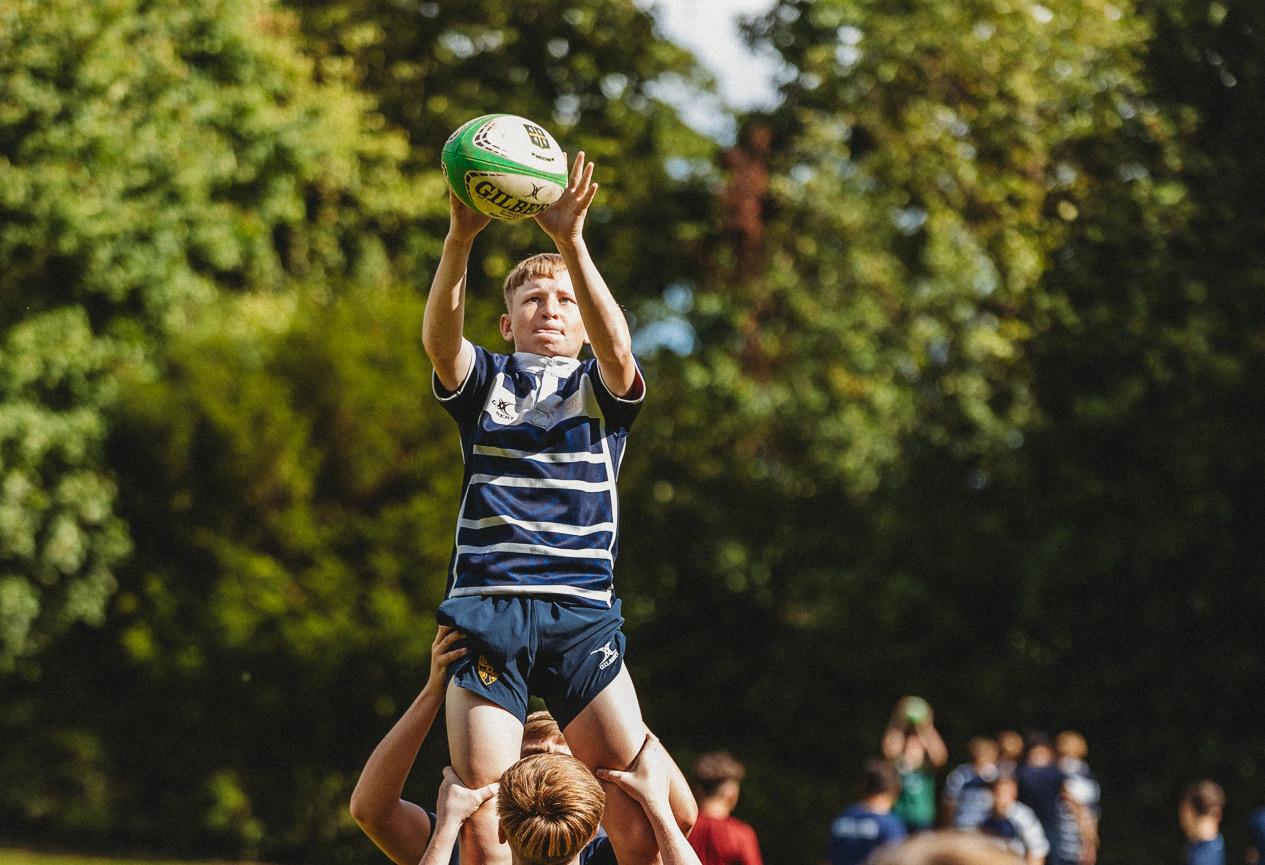
1
1. All-Round Achievement
Pupils at Durham School are encouraged to excel both in the classroom and beyond. Academic achievement is strong, with 44.4% of all GCSE results in the grade 7–9 range in 2025. Many of our pupils progress to leading Russell Group universities, including the University of Oxford and Durham University.
Excellence extends well beyond the classroom too. Pupils have gone on to compete in sport at the very highest levels, from British championships and professional cricket to representing their country at the Olympics.
Our pupils also excel in the arts and we regularly stage unmissable musicals and plays in The Luce Theatre, as well as host stunning art exhibitions.

2
2. Values in Action
The Foundation’s values of Moral Integrity, Ambition, Responsibility, and Kindness underpin everything we do. These values are not just taught in lessons; they are lived out by both pupils and staff each day, shaping the way we learn, work and grow together as a community. We do not just talk about our MARK values — we weave them into daily life, encouraging pupils to practise them in class, in Chapel and beyond the school gates.
Moral integrity is about having the courage to do what is right, both in public and in private. It means standing firm in your beliefs, being open to challenge and taking responsibility for your actions and outcomes.
Ambition encourages every pupil to strive for excellence in all they do. It is about making the most of every opportunity at Durham School and Foundation, growing not only in achievement but also in character.
Responsibility calls pupils to be active members of our community, to take ownership of their choices and to develop their leadership potential in ways that benefit others as well as themselves.
Kindness reflects the Christian ethos that underpins our values. It means treating others with respect and tolerance, embracing diversity and working together as one Foundation family.
Our motto, “Confidence for life. Respect for all.”, captures exactly what we hope to instill in every pupil: the confidence to pursue their goals and the respect to value the voices of others.
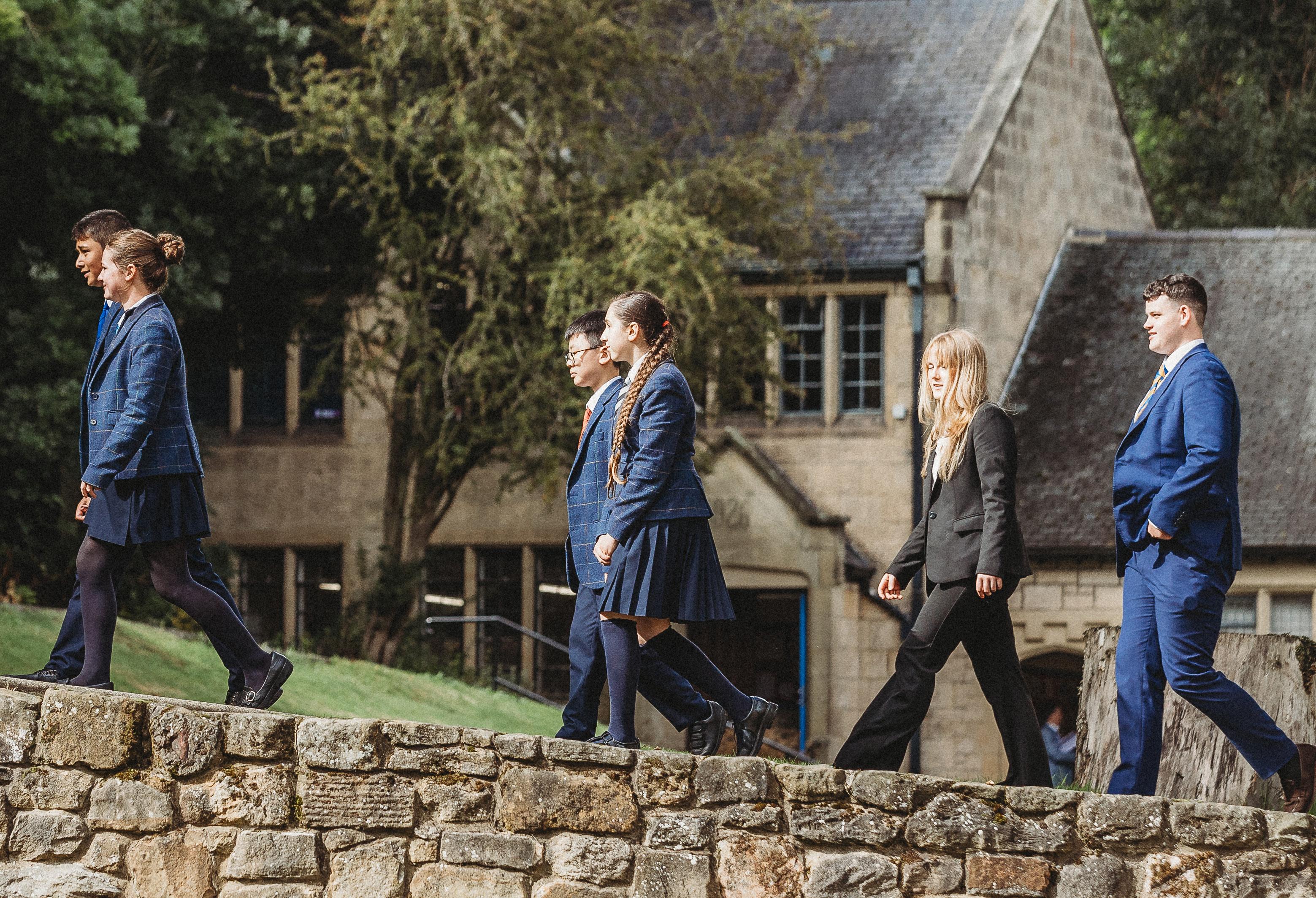
3. Your Path, Your Way
At Durham School, you don’t have to choose between your passions – you can be a sports champion and a talented musician, a promising actor that excels in mathematics. Here, you’re encouraged to be everything you want to be, and more.
Our wide range of co-curricular clubs and activities means there’s something for everyone, from animation and debate to sport, music, drama, and beyond. Whatever your interests, you’ll find opportunities to explore them and discover new talents along the way. We’re committed to supporting every pupil on their own unique journey.
All pupils are encouraged to take part in a wide range of co-curricular activities, not only to support their personal development but also to promote relaxation and wellbeing after periods of study.
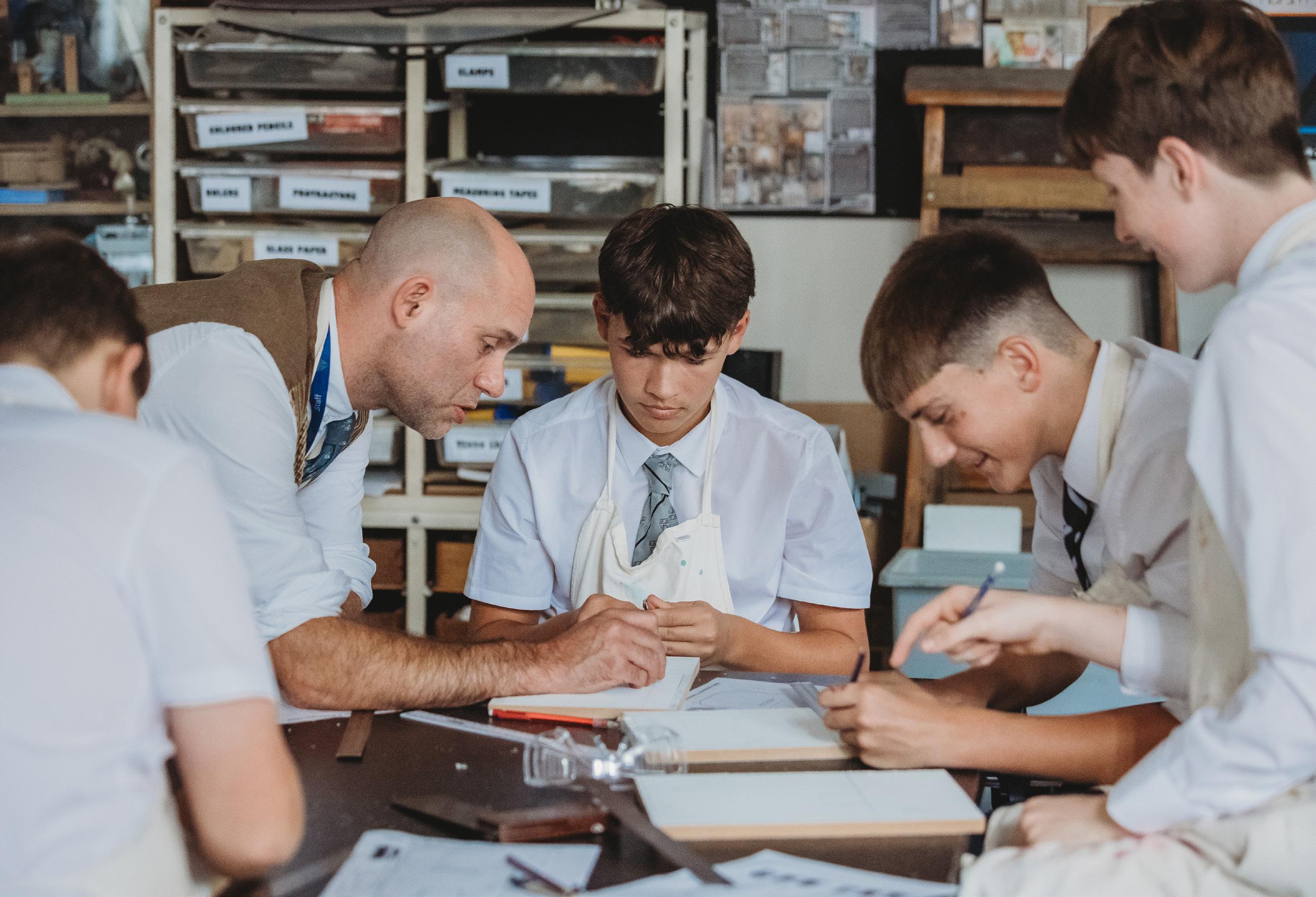
4. Dedicated Staff
At Durham School, our teachers are not only highly qualified but also deeply passionate about what they do. Many have experience in their fields, which brings learning to life in the classroom. Their enthusiasm makes lessons engaging and enjoyable, helping pupils feel inspired and supported as they learn. Teachers take the time to get to know each pupil as an individual, building confidence and encouraging a love of learning. They are also available outside of lesson time for bespoke support.
We have a brilliant team of Learning Support staff who work closely with pupils to ensure that every individual’s learning needs are met with care and expertise. Additionally, we offer EAL support to international pupils who may need it.
Our House staff create warm and welcoming spaces where pupils feel at home. Whether you are a day pupil or a boarder, you’ll quickly get to know them. They are there to support you, listen when you need it, and share in your successes. The close relationships built within the Houses mean that every pupil feels part of a caring community, with staff who know them well and are always ready to celebrate their achievements or offer a helping hand.

5. House System
At Durham School, our House system is at the heart of school life. Each House develops its own identity, built by its community, and every pupil represents their House with pride.
Because each House includes pupils from every year group, you’ll build friendships across ages – connecting with people you may not otherwise meet. Younger pupils benefit from the guidance and support of older peers, while older pupils enjoy the chance to mentor and share in the fun of school life with their younger peers.
Our Houses are not just communities, but physical spaces where pupils can spend time outside of lessons. They provide a true “home from home,” with common rooms to relax and socialise, kitchens for snacks, and study areas for focused work.
Throughout the year, Houses join in a wide range of events – many organised by pupils themselves – that bring everyone together, build teamwork, and create a real sense of community. From House music and House sports competitions to House barbecues and regular socials, there’s something for everyone to get involved in.
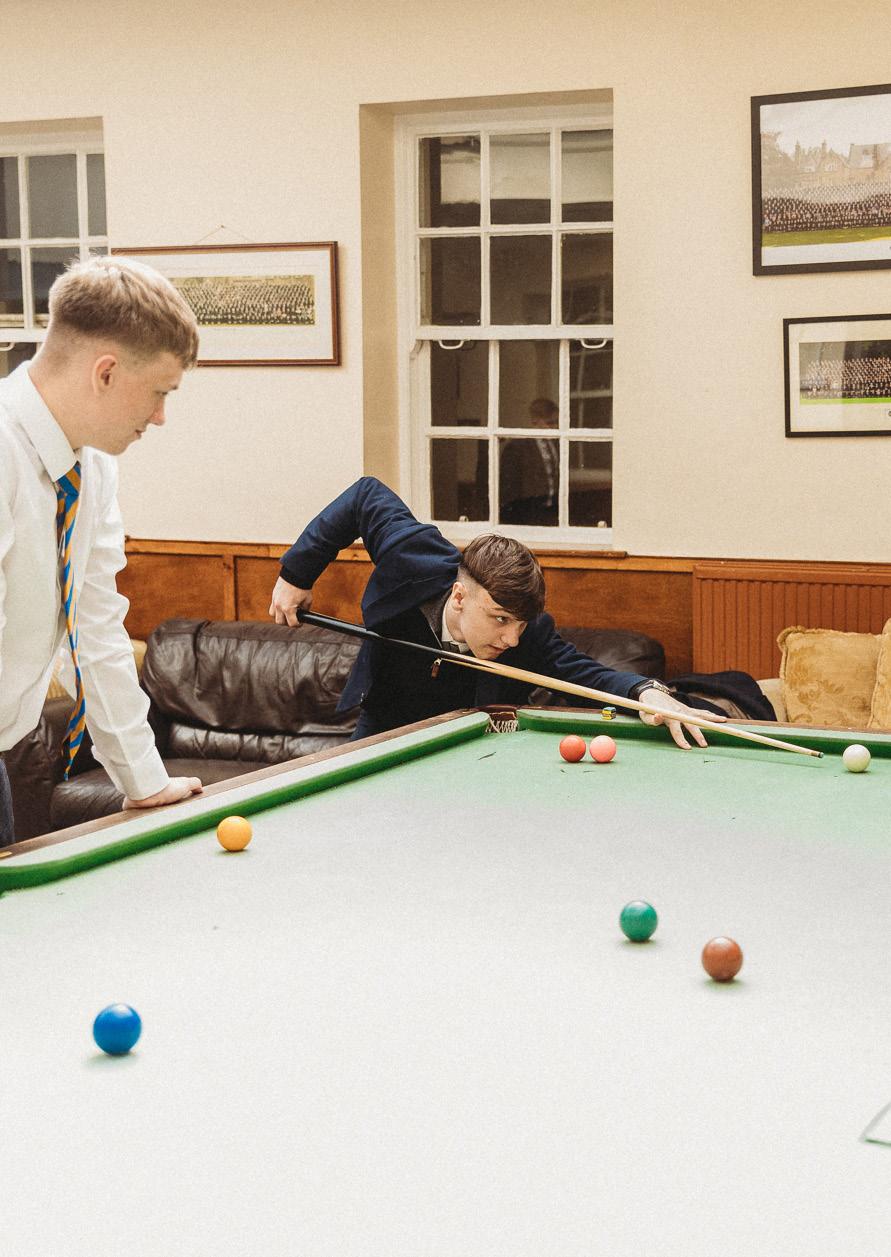
6. Boarding
Boarding at Durham School is more than just a place to stay, it’s a vibrant community. You’ll form friendships across year groups, creating bonds that last well beyond school. With no daily commute to worry about, you’ll have more time and energy to focus on your studies and enjoy school life to the fullest.
Boarders enjoy a full programme of activities and trips each week, from shopping and exploring Newcastle to go-karting, hiking, and even catching musicals at the theatre. In your House, you’ll enjoy cosy evenings by the fire pit toasting marshmallows, fun movie nights, and lively board game sessions with friends.
You’ll always be known and supported as an individual, with caring staff on hand to listen and guide you. In our boarding community, there is always someone to talk to.
Million thanks to dearest Durham School that has become a second home for our daughter. Thank you for your special attitude to all international students and the support you provide them with. It means a lot to our family.
- Durham School Parent

7. Connection Across Cultures
Durham School is home to a thriving international community, with pupils from over 25 countries. We are proudly diverse and welcome many international pupils each year.
As an international pupil at Durham School, you will have the opportunity to strengthen your English, experience local culture, and gain a global perspective through your peers.
Our diverse boarding community offers a welcoming environment where pupils build meaningful connections across cultures.
8. Beyond the Classroom
As a Durham School pupil, you’ll have the opportunity to enrich your learning experience through a wide range of insightful events and trips such as geography field trips, science fairs, drama trips to the theatre and much more.
Outside of lessons, your learning and development can be supplemented through exciting trips like our international sports tours. These opportunities not only enrich your studies but also help you build confidence, develop independence and create lifelong memories.
In daily school life, you’ll have the chance to cheer on friends at sports fixtures, celebrate their talents on stage in the Luce Theatre, support them in concerts held in Chapel, and share in many more memorable moments.
Additionally, we are located on the doorstep of Durham City, which pupils may visit after school with friends. Our boarders often spend some time on the weekends here, exploring Durham Cathedral and walking by the riverside.
9. Dedicated Pastoral Care
Our Houses act as the heart of pastoral care at Durham School. Each morning, pupils meet in their House for roll call and have the opportunity to speak with staff about any concerns or challenges they may be facing.
As our House system ensures that every pupil is known as an individual, pastoral needs are more easily recognised, and there is always a trusted member of staff available to offer guidance and support.
Pastoral care is led by a dedicated team of specialist staff who oversee this vital area. They also ensure that all members of staff are equipped with the knowledge and skills needed to provide effective, appropriate care, so that every pupil feels supported throughout their time at Durham School.
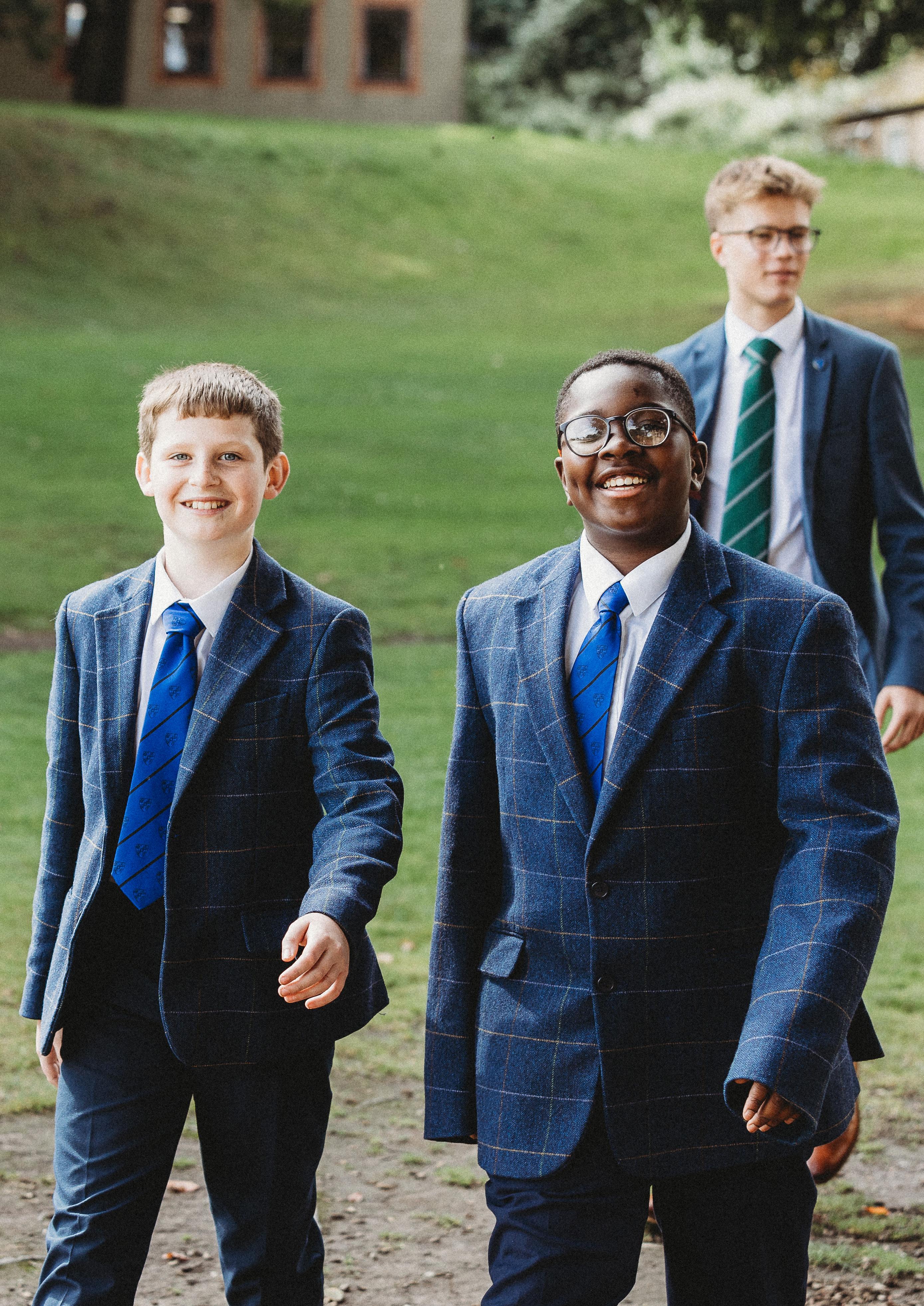
10. Building Your Future
As a Durham School pupil, you won’t just grow academically — you’ll also experience valuable opportunities for personal and professional development throughout your time here. Chances to build confidence and transferable skills are integrated throughout daily life. From speaking in Chapel to organising events, every pupil benefits from these opportunities to grow.
Year 11 pupils can apply to become Peer Mentors, who work with other pupils who may need some extra support. Additionally, pupils who move up into our Sixth Form will have the opportunity to become Monitors who act as ambassadors for Durham School and regularly help the community through responsibilities such as organising events. Our Peer Mentors and Monitors are recognised and appreciated by our community for the important work that they do.
Following their time at Durham School, pupils are welcomed into the Old Dunelmian Society, the Foundation’s alumni network. Founded in the 1880s, the Society keeps ODs connected with one another while supporting the School and its current pupils as a united body. The OD Society organises a number of popular and enjoyable reunions and events each year as well as career events and networking opportunities.
The teachers are there to support you, and if you work hard, you will do well.
- Year 11 Pupil (2025)
I cannot thank the entire Teaching staff and Pastoral staff enough for this amazing celebration. You took our 12 year old daughter and turned her into an academic weapon!
- Durham School Parent
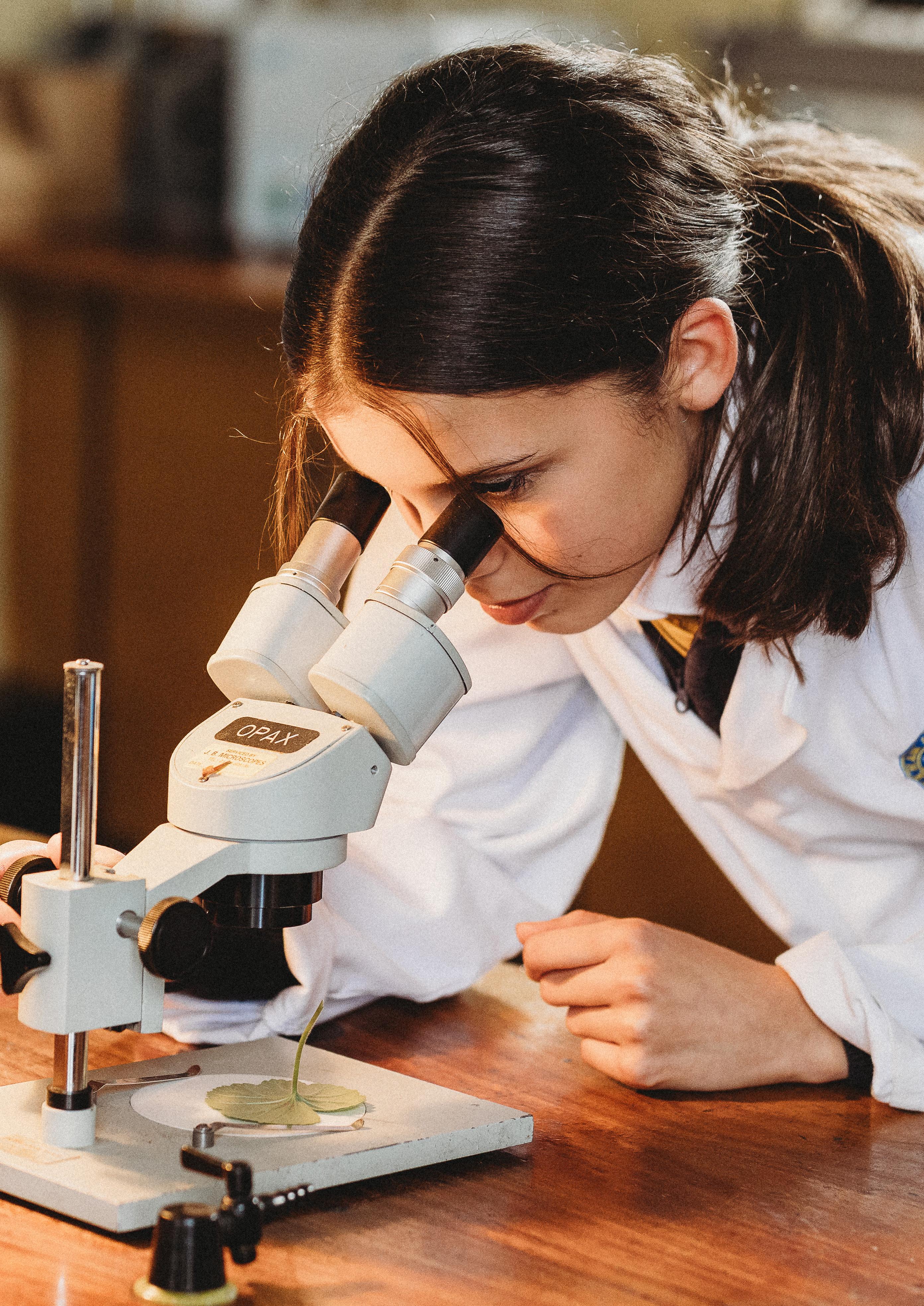
The Curriculum
Year 7, 8 and 9 pupils at Durham School are offered a challenging, stimulating curriculum designed to stretch their capabilities.
Within our school environment, they will develop the time management, communication and study skills required to set them on the road to successful independent learning in the future. Beginning in Year 7, each pupil is assigned to one of six Houses where they will continue to build strong relationships with their peers under the watchful eyes of their tutor and Housemaster or Housemistress. The House staff will offer regular guidance, assisting with organisation, academic and pastoral support. Our pupils will find opportunities for both leadership and participation in many different fields; musical activities, drama productions, sport, and numerous clubs and societies are a feature of life at Durham School.
The Year 7-9 Philosophy - ‘Learning to Learn’
Years 7-9 at Durham School provide an opportunity for our pupils to begin their journey as learners. Our philosophy revolves around empowering our pupils and helping them fulfil their potential in three key areas: In order to facilitate their development, our pupils take part in a programme of events running throughout the academic year, designed to enhance their key skills in critical thinking, team, and public speaking. ‘Learning to Learn’ events are interwoven within the normal curriculum and focus on the following core areas: problem solving, enterprise, debating and presentation skills and global awareness. The programme allows pupils to gain exposure to topical issues and guest speakers, as well as developing their research and presentation skills, both as individuals and as part of a larger group.
The School’s aim is to develop our pupils’ capabilities as follows:
Core
Literacy: Reading and comprehension, clarity in writing, speaking and presenting.
Numeracy: Use of numbers to support reasoning, analysis and logical thinking.
Research: Find, retrieve, record and use digital media to produce, network and create.
Personal
Collaboration: Participate and work as a team to develop, produce and create.
Self-Management: Persistence, initiative, organisation, self-awareness, leadership and empathy.
Critical Thinking: Apply, analyse, prioritise, infer and evaluate.
Reflection: Respond to feedback and generate self-targets for the future.
Creativity: Develop new lines of thought, take risks to challenge assumptions and develop new ways of doing things.
Curriculum Plan
Curriculum Plan 2025/26 Year 7-8
7 Mathematics and English are set across the whole year
8 Mathematics, English, French, and Latin are set across the whole year group
or
Year 9 Option Subjects
Year 9 pupils are given autonomy and choice in the direction they wish their studies at Durham School to take them. Option subject choices offered are: Art, Classical Civilisation, Design, Drama, Computer Science, Latin, and Music. The breadth of these creative, practical and academic subjects allows pupils to make an early option choice in Year 9, focusing on their strengths and interests. Making these choices based on interest and ability allows Year 9 pupils the opportunity to engage with a curriculum pathway more suited to their individual needs. We also offer an alternative for pupils with a heavy music commitment – the Elite Music Pathway. This allows pupils in Year 9 to choose 3 options, including Music, and use the ‘spare’ time for Music practice and rehearsal. This pathway is only available after discussion with Mr Bowler. When pupils come to selecting their GCSE options there is not always a stipulation that they need to already have studied a particular option subject in Year 9, but the study of these subjects provides a foundation in the subject, gives them a flavour of the content at GCSE, and many pupils will inevitably choose to continue with the study of the subject in Years 10 and 11.
Curriculum Plan 2025/26 Year 9
Options subjects are taught in mixed ability groups. Pupils select 4 from the following 7: Art, Classical Civilisation, Design, Drama, Computer Science, Latin, Music
Language Options are taught in mixed ability groups. Pupils opt for either Spanish or German.
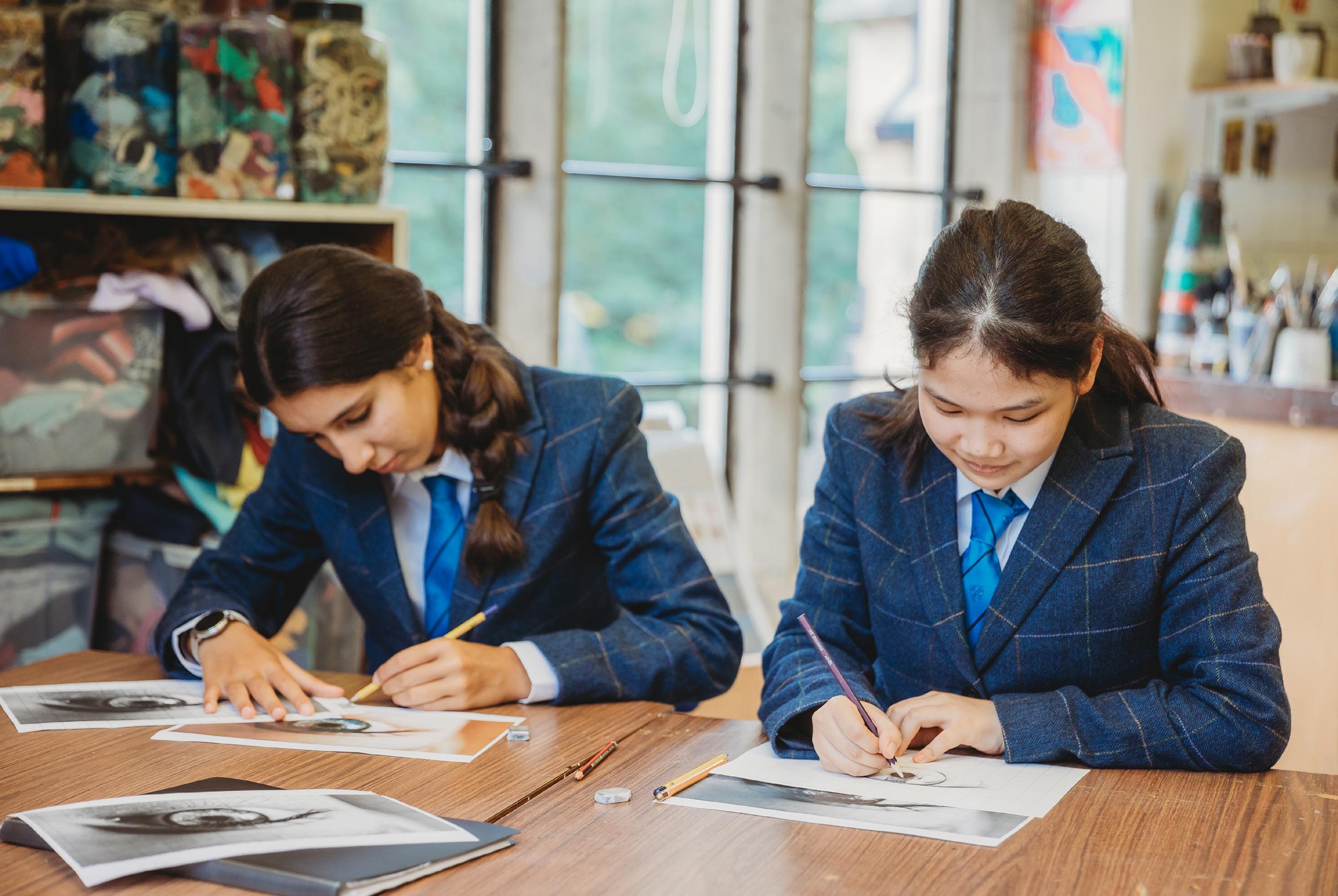
Art
Head of Department: Mrs L E Thompson
Art is a broad and complex subject which aims to deliver a wide breadth of understanding of artistic medias, materials and processes. Art is everywhere and can be experienced by everyone. It helps build a knowledge of an ever-changing and growing world. It enables expression and promotes imagination.
Year 7-9
Pupils are taught key skills during the early years focusing on the key formal elements of art. As pupils progress the department helps to further develop artistic expertise and aims to promote independent learning and self-expression, underpinned by thorough technical training. Pupils undertake a variety of project work based on given themes. The curriculum is designed to provide pupils with a vast variety of key artistic skills. The acquisition of competent drawing skills is encouraged and pupils undertake a variety of exercises to facilitate this. Above all, we aim to ensure that pupils enjoy the subject and are able to appreciate art in the wider world.
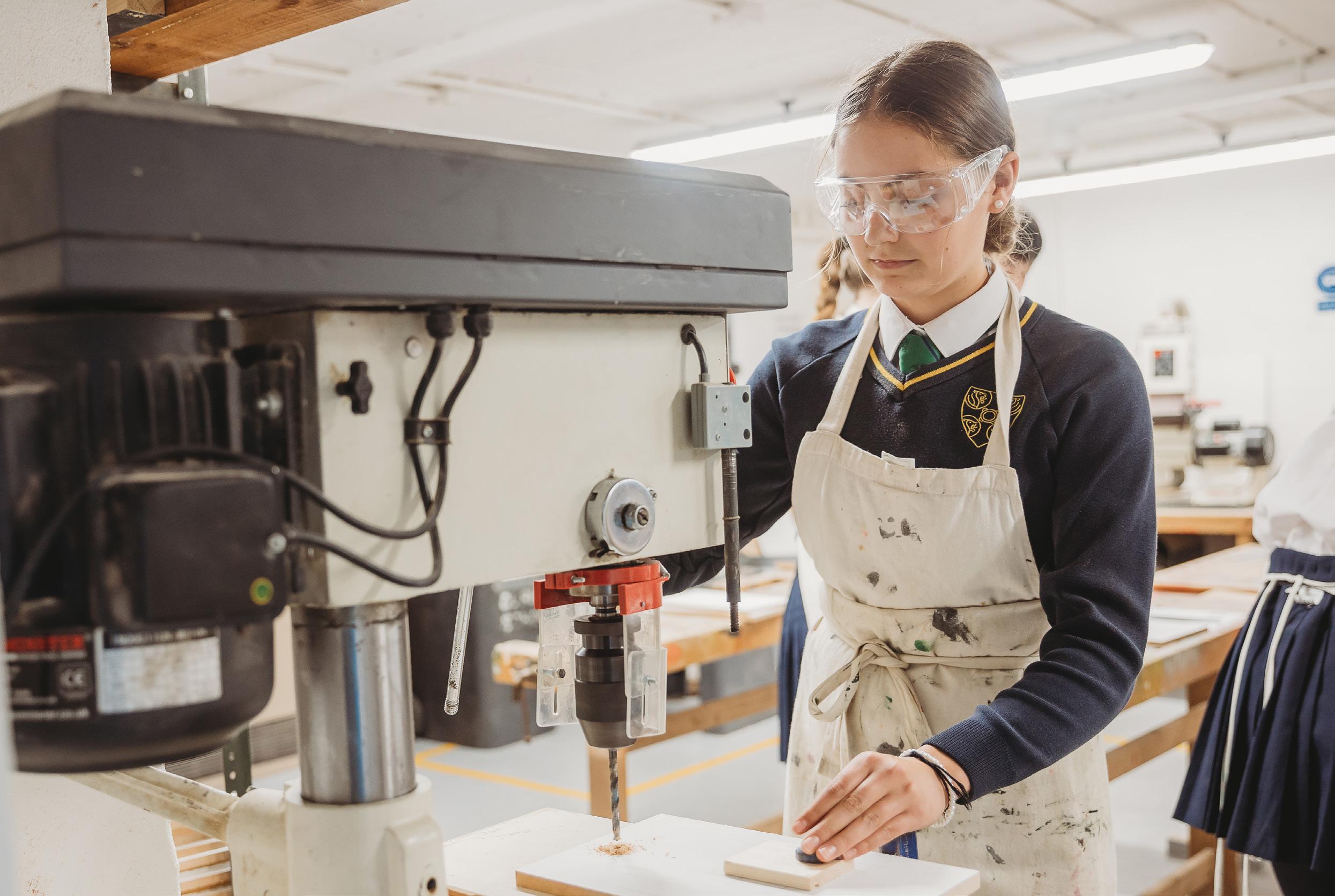
Design Technology
Head of Department: Mrs L E Thompson
The Design Technology curriculum provides pupils with the opportunity to design and make products that develop their creativity and originality using a range of skills that range from Computer Aided Design and Technical Drawing, to practical skills in the workshop or classroom. The schemes of work seek to develop pupils’ knowledge, understanding and skills to enable them to problem solve creatively and work independently towards solutions.
Pupils undertake a variety of structured projects each year which develop key skills and confidence within areas such as Graphic Design, Workshop tasks, Product Design, Textiles and Design Communication. Year 9 pupils follow a more focused pre-GCSE course where key knowledge and understanding are developed within the broad areas of Three Dimensional Design and Graphic Communication, along with developing the core skills, knowledge and approaches that will aid them at GCSE and beyond. Our aim is always to enable all pupils to have the opportunity to succeed and understand the role of design in the wider world.
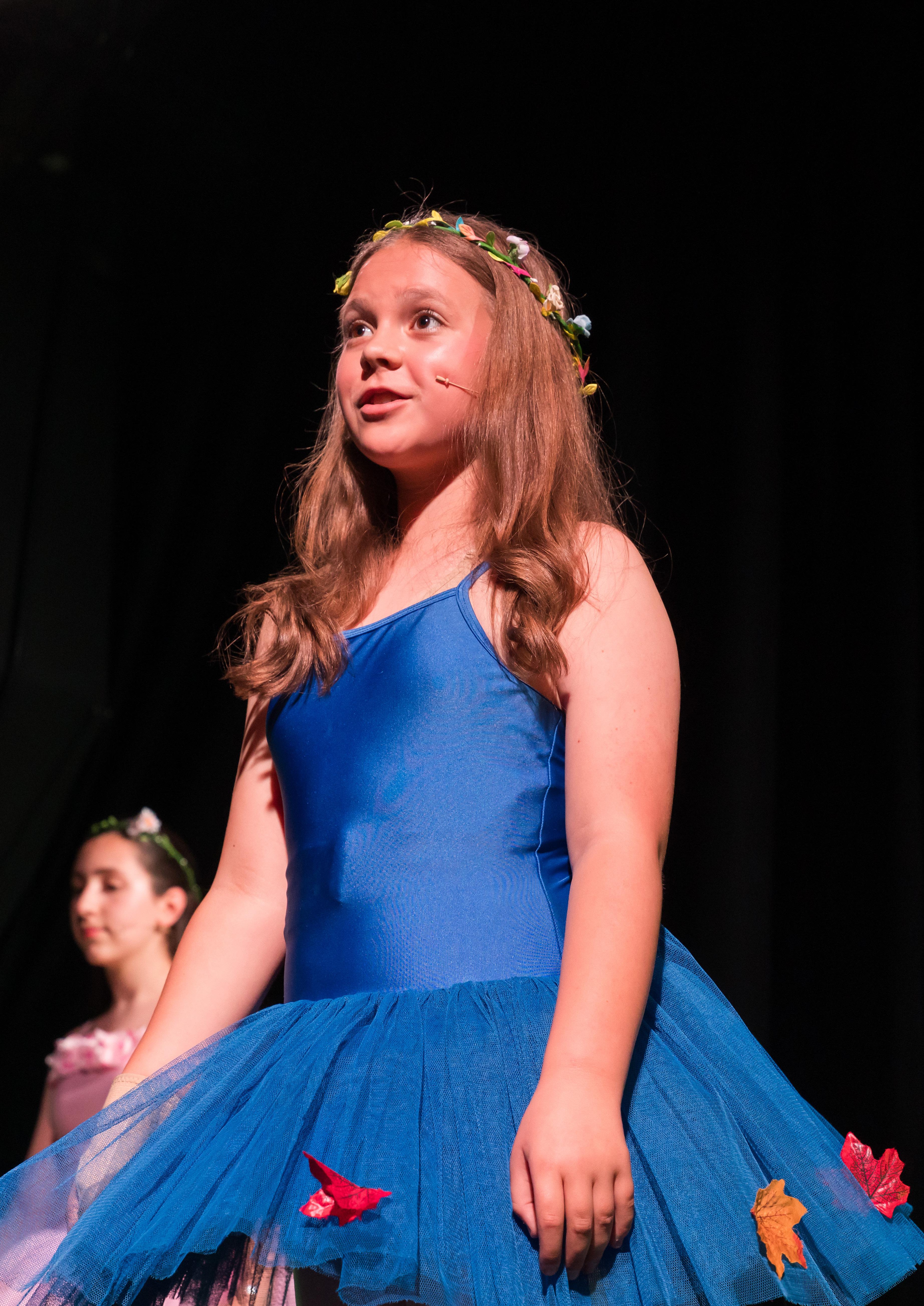
Drama
Head of Department: Mrs A V Brownlee
Drama is an exciting and rewarding subject which offers pupils the opportunity to develop skills of confidence, discipline and creative teamwork. As well as performance skills, crafting of the theatre and technical and design elements are studied. All year groups studying drama will work towards assessed performances that will often take place in front of an invited audience. Drama plays a huge role in life at Durham School, with many pupils actively taking part in the range of cocurricular opportunities on offer; for example the annual school production, live theatre visits or House drama competitions.
Year 7-9
Lower School Drama teaches pupils key drama skills including use of gesture, voice, tableau and mime. Pupils learn how to evaluate their work using drama terminology and will explore different play scripts and be introduced to different styles of theatre like Greek Tragedy and Commedia Dell’arte. In Year 9, pupils explore all elements of the theatre and will be exposed to a range of different plays and texts; preparing script work for performance and crafting ambitious and extensive devised scenes in a range of different styles. Pupils also have the option to be assessed on technical or design skills like lighting, sound or costume. Pupils learn to successfully reflect on the rehearsal process and evaluate the success of their work as a performer or a designer.
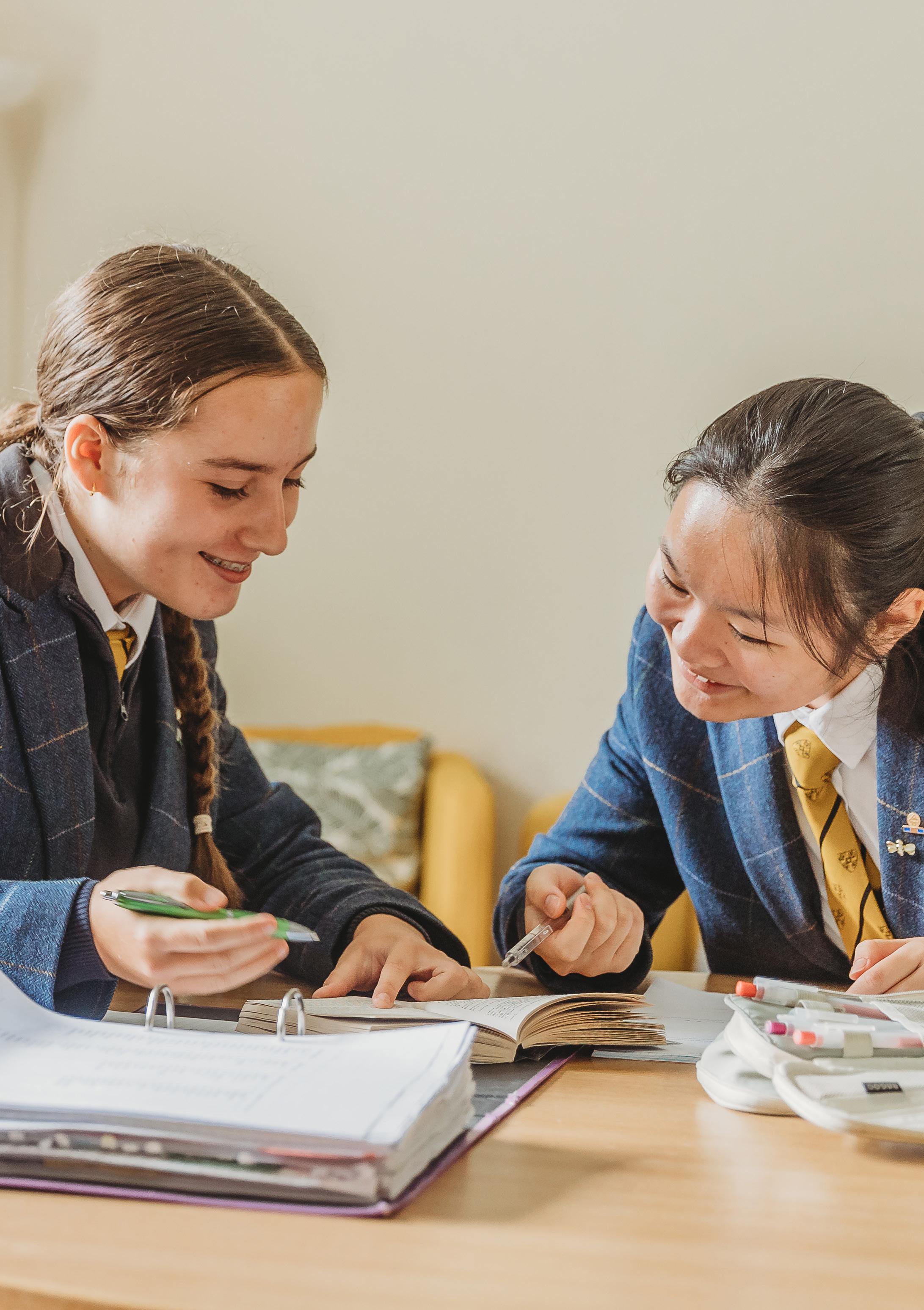
English
Head of Department: Mrs F Swan
Much of our English curriculum is delivered through the literature we study. Reading is central to teaching children how to write effectively so pupils study literature in class and are also encouraged to read widely for pleasure. Pupils experience writing in different forms be it journals, letters, essays, reviews or narratives. Each year group studies a novel, a Shakespearean play and a selection of poetry. Grammar is taught explicitly and assessed, and also reviewed through the pupil’s own writing and the feedback given by their teacher. Reading comprehension is practised through the study of literature and also discretely through unseen passages and comprehension tasks. Pupils also experience a number of non-fiction texts. Through internal prizes and external competitions pupils take part in debating, public speaking, writing and reciting poetry, and creating stories and mini sagas. As part of Reading Week, pupils in Year 7 visit Seven Stories, the archive of children’s literature in Newcastle. We also take part in a scheme called Book Buzz whereby students can choose from the Book Buzz book list and pay a fraction of the retail price for the book of their choice. The Buzz created is the discussion of which books to read and recommendations from peers of which books to read next! The Library holds copies of all of the Book Buzz options.
Year 7-9
Pupils have six or seven lessons of English a fortnight. In Year 7 pupils start looking at storytelling and narrative structures and move on to consider their class reader. Pupils will usually study ‘A Midsummer Night’s Dream’ and complete an introduction to Shakespeare task. Our aim in Year 7 is to introduce pupils to Shakespearean texts in an accessible and engaging manner. The poetry that pupils study is taken from a wide range of anthologies. In Year 8 pupils look at storytelling through ballads and poetic forms as well as considering their class reader. They will usually study either ‘Macbeth’ or a comedy for their Shakespeare text going into more detail than their Year 7 study of a Shakespeare play. In Years 7 to 9 we use an online vocabulary learning platform called Bedrock. We have found this to be extremely helpful in supporting the development of not only students’ vocabulary but also the amount they read and engage with different texts. Each student completes an initial test on Bedrock that sets the block that they work through, so the work is appropriate for each student.

Geography
Head of Department: Dr C H Scott-Warburton
Geography builds knowledge of the world we live in and an understanding of geographical processes and current events, from local to global scale.
Year 7-9
In Years 7, 8 and 9 all pupils study Geography. The curriculum we follow hopes to inspire in pupils a curiosity about the world, and give them a desire to increase their knowledge and understanding of a variety of places. The topics of study are relevant to the main geographical issues and concepts that young adults are likely to encounter in their current and future lives. Year 7 pupils learn how to make geographical observations to investigate the world about them. They develop their map skills, study settlements, investigate rivers and extreme weather events. Year 8 are encouraged to look more globally, studying ecosystems, economic inequality and adventure landscape formation. In Year 9 pupils become geographical decision makers through the study

History
Head of Department: Mr S P Wright
The History Department has a head start with Durham School pupils. They are absorbing history throughout the school day, and the ghosts of ODs haunt the lessons. Are they studying the AngloScottish Wars? King John Balliol attended school in Durham. Are they looking at Queen Elizabeth’s persecution of the Catholics? Step forward James Young, alias James Dingle, OD. Are they researching slavery? Behold Granville Sharp, who helped secure the end of slave trading. Henry Hardinge OD fought with Wellington at Waterloo and became Commander-in-Chief of the British Army. Noel Hodgson OD is one of the war poets and fell on the first day of the Somme. History is truly all around them.
Year 7-9
All pupils take History, in which they are introduced to a thousand years of British history. In Year 7, our focus is on England in the Middle Ages. Topics include the Norman Conquest, kingship, warfare, the Church and the evolution of medieval society. Year 8 pupils examine the revolutions that transformed early modern Britain. The Reformation saw England and Scotland break from Rome. The Civil War, Glorious Revolution and Act of Union created a new country. The Industrial Revolution made the UK the ‘workshop of the world’. We take a global perspective in Year 9. We begin with the British Empire, before studying in detail the causes and course of the two World Wars.

Computer Science
Head of Department: Mrs L Fox
Consisting of two modern computer suites, each classroom has approximately 24 networked computers, allowing controlled safe access to the internet for all pupils. Access to this network is available during the lessons and activities, allowing for free study or class work to be completed. Site-wide wireless support allows pupils to access the internet through the safety of the school firewall on their own computer equipment, alongside equipment that is provided by the school.
Year 7-9
Pupils follow a common scheme of work based upon the National Curriculum, developing their skills in support of all subjects studied in Years 7-9. Building strong computer skills at this early stage is seen as essential for a pupil’s education at Durham School, giving a solid foundation for the use of technology throughout the pupil’s life within the school, and beyond.
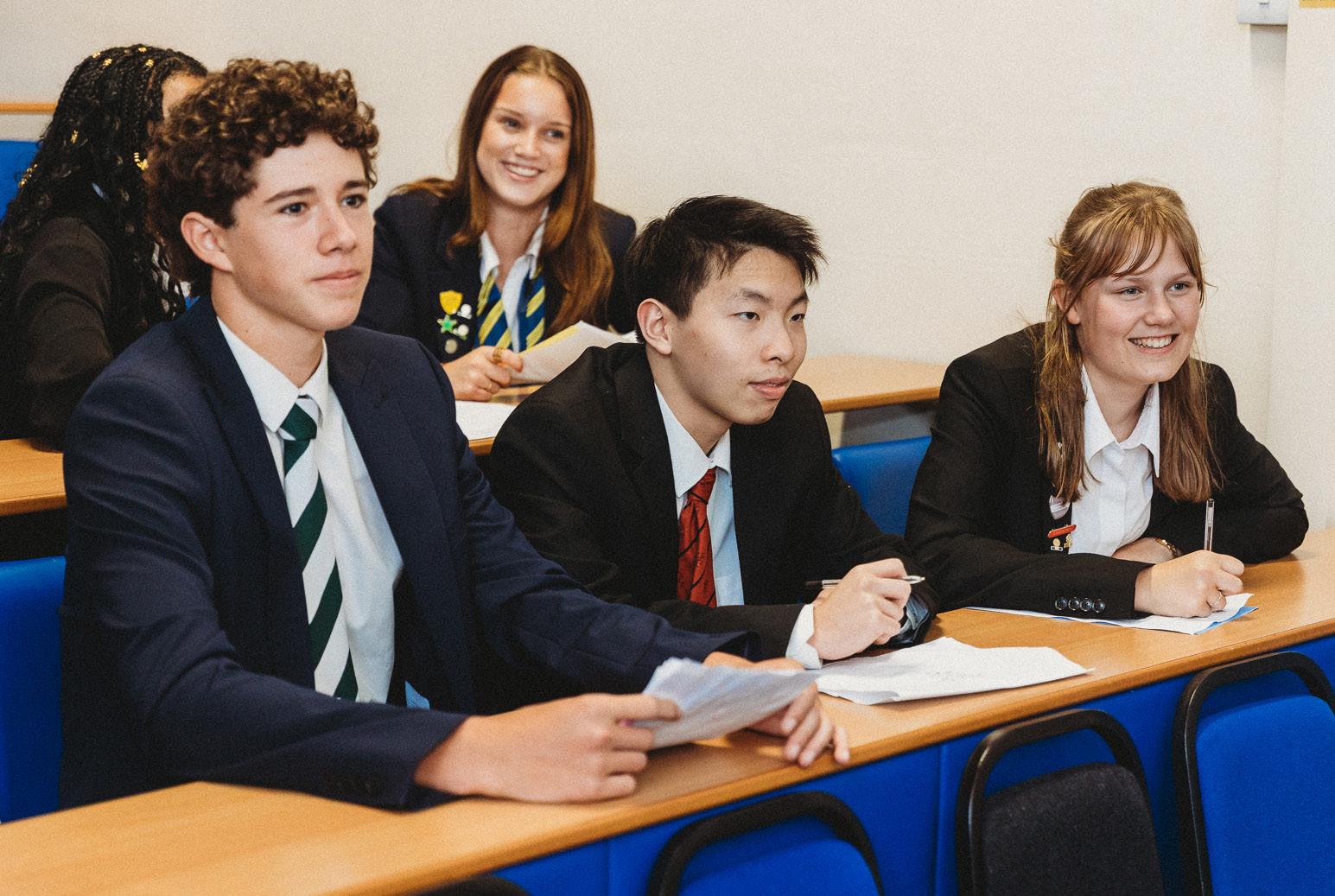
Mathematics
Head of Department: Mr T N Middleton
Mathematics is a powerful tool for understanding the world around us and a fascinating discipline in its own right. We have an enthusiastic and highly-qualified staff who are here to engage and help through all of the courses. We are very proud of our results with excellent pass rates at both GCSE and A Level. Each of our classrooms is equipped with an interactive whiteboard and we have an exceptionally powerful online learning platform for all pupils.
Year 7-9
In Year 7 and 8 we follow the Collins Maths Frame working scheme, and begin the GCSE course in Year 9. Pupils are set according to ability. There is, however, the opportunity for movement between sets depending on performance during the year.

Latin & Classical Civilisation
Head of Department: Mr C J Hope
Latin focuses on the language of the Roman world but also the historical and social context of the Roman world. Classical Civilisation offers pupils a chance to access the societies of the ancient world by introducing them to the gods, cities, leisure pursuits and literature of Greece and Rome. The department has recently run trips to Rome and Pompeii and makes use of the proximity of Hadrian’s Wall and local Roman sites. It also has close links with Durham University and the wider Classics community from which speakers are invited to conduct workshops or present talks to older pupils.
Year 7-9
Latin is taught to all pupils in Year 7 and 8 using material from the Cambridge Latin Course. Basic grammatical concepts are introduced in reading passages set in Pompeii. Each chapter incorporates background material on Pompeii revealing how Roman society functioned. Progress continues in Year 8 with stories based in and historical background information concentrating on Britain and in Egypt under the Roman Empire. Latin during Year 9 continues to build on the grammar of Years 7 and 8 with the introduction of more forms and vocabulary lists. The focus is on reading Latin and graduated passages, giving pupils a grasp of the foundations of the language by the end of the year. In Year 9 pupils can choose to come along to the Year 9 Ancient Greek Club, offered on a lunchtime after Christmas, where they learn the basics of the language for fun or with a view to pursuing the subject as an additional GCSE in Years 10 and 11. Classical Civilisation in Year 9 involves an introduction to the beginning of Greek civilisation and its history, inventions and myths. The material studied in Year 9 links closely to that of the GCSE course so the course serves as a ‘taster’ for further study though integral in itself.
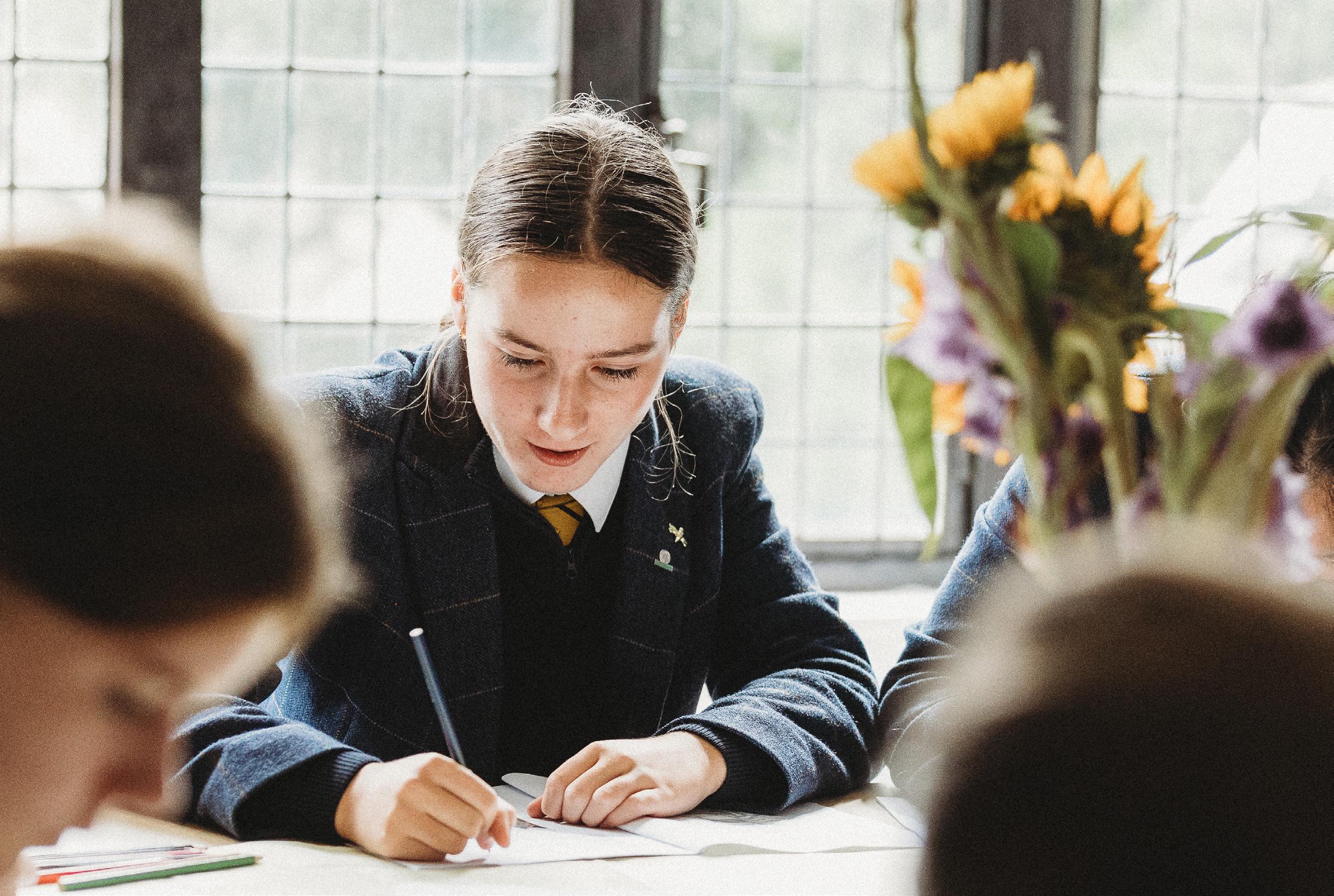
Modern Foreign Languages
Head of Department: Mrs K L Wilkinson
The teaching of languages at Durham School dates back at least to the school’s re-foundation in 1541 by King Henry VII, and beyond to the monastic school begun with the building of the Cathedral. Building on our history of teaching languages at Durham School, we hope to combine the best elements of the grammar - translation tradition with modern methodology to enable pupils to use the language accurately and effectively in everyday situations as well as to prepare pupils for further study.
Year 7-9
In Year 7, pupils receive five periods of French per fortnight and are taught in mixed ability groups, while in Year 8 pupils are set by ability across the whole year group. In Year 8, we divide six language lessons equally each fortnight between French and German or French and Spanish. At the end of Year 7, pupils are given the opportunity to opt for their second Modern Language (German or Spanish) in the Easter term. French remains a core subject in Year 9 with pupils set across the whole year group. Each set has three periods of French per fortnight. Those pupils who have opted for German or Spanish in Year 8 will continue with this second Modern Language in Year 9. This should give pupils a good idea about which language, or indeed languages, to study for GCSE.
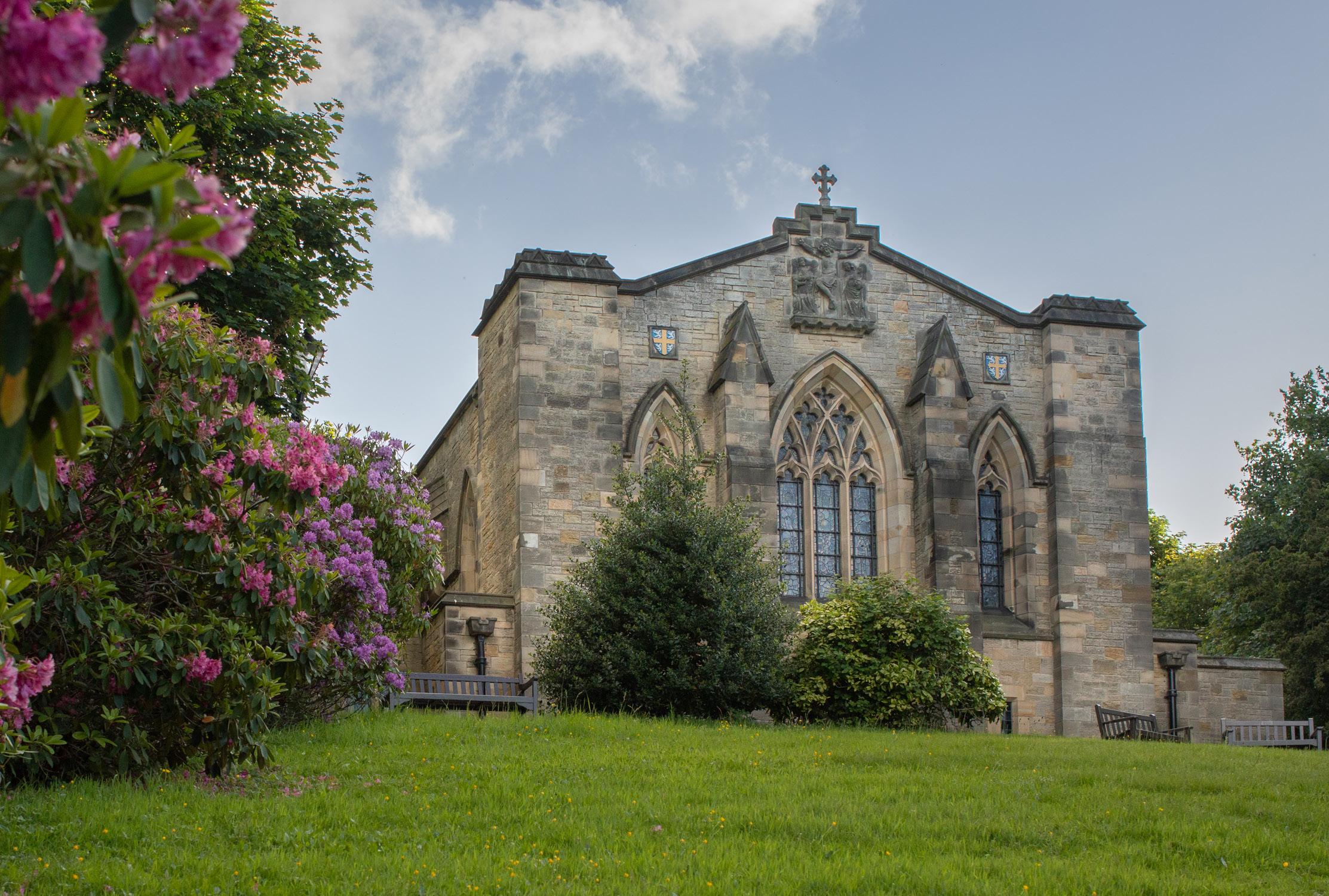
Religious Studies
Head of Department: Fr S A McMurtary
Religious Studies, Philosophy and Ethics is a lively subject that explores the key beliefs and practices of the six major world religions as well as an introduction to philosophy and ethics. The emphasis in Years 7-9 is on developing cultural literacy, as well as critical thinking skills and logical reasoning. Religion continues to impact the world in a myriad of ways, and it is as important today as it has ever been for young people to be thoroughly equipped to navigate the complexities of the religious landscape.
Year 7-9
Over the course of Year 7 and Year 8 pupils will focus on Judaism, Christianity, Islam, Hinduism, Buddhism and Sikhism. As each religion is explored, pupils will research key beliefs and practices as well as influential figures and their impact today. By the end of Year 8, all pupils will have a good overview of the six major world religions and be in a good position to explore these further at GCSE. In further preparation for the GCSE course, Year 9 pupils will be introduced to the basic ideas of philosophy. This will include arguments for and against the existence of God and an exploration of ethical issues such as crime, punishment and abortion. By the end of Year 9, all pupils will have had the opportunity to develop their ability to critically examine completing claims and argue a thesis.
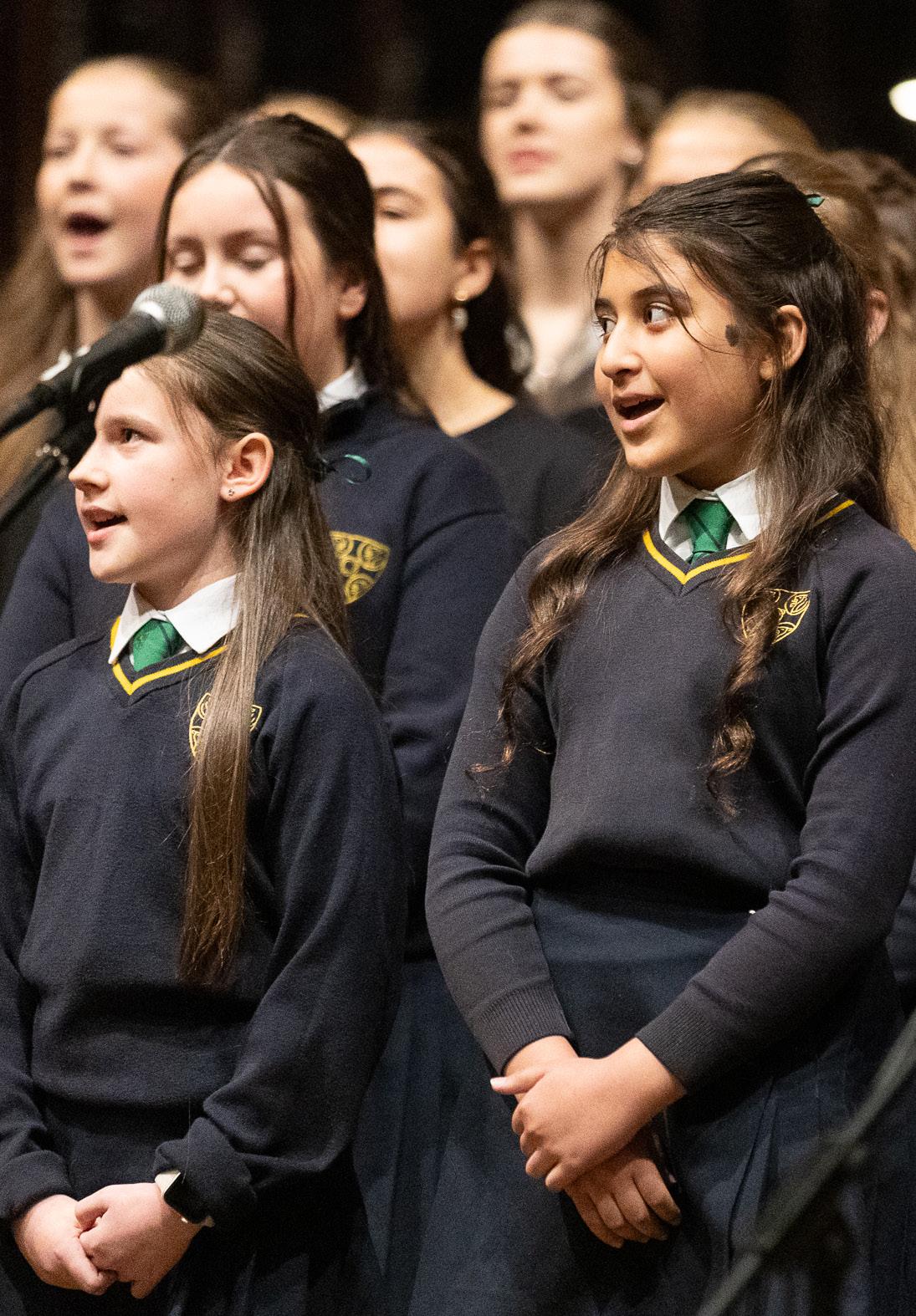
Music
Head of Department: Mr S R Bowler
Music at Durham School plays a central role in the communal life of the school. The department aims to ensure that practical music making is made as inclusive as possible for all pupils throughout the school, whilst striving for the highest possible musical standards at all levels. Academic music is given a high priority and the pupils are encouraged to study music at GCSE and A Level. The curriculum is challenging and structured, based on performing, listening and composing. The department provides tuition and coaching on all instruments and voice, and endeavours to motivate and enthuse all musicians within an environment which promotes and rewards high values. Links are maintained with feeder schools, the Cathedral and University as well as further afield and internationally. Above all, the department strives to promote a sense of pride, achievement and enjoyment in all its activity.
Year 7-9
Classes are of mixed ability, but teaching is tailored to the specific ability of each student. There are suitable extension tasks for more advanced young musicians and support is there to ensure less experienced pupils fully understand each point of learning. We place great importance on singing and aural skills and most lessons begin with a ‘Kodaly’ based singing exercise. Confidence in this area significantly improves outcomes in subsequent theoretical and practical activities. Lessons make use of keyboards and djembes for performance activities and there are opportunities to experience music technology through composition tasks using ‘Musescore’. All the skills encountered and developed in Years 7 - 9 prepare students for GCSE study should they wish to pursue this course.

Science
Heads of Departments: Mr M F Burke (Biology), Mrs F J Gowland
(Chemsitry), Mr A P Smith (Physics)
Science is an exciting subject which focuses the mind on discovering how the world fits together. It helps us think logically and helps develop a scientific approach to understanding and to learning. In both Year 7 and Year 8 we concentrate on developing the skills needed for GCSE using practical investigation work, group projects and basic mathematical reasoning. We also help pupils to understand the key fundamental topics such as the atom, cells and forces, leaving them well prepared for the start of GCSE science. Pupils are taught all three subjects of Chemistry, Physics and Biology from the start but are taught how the three subjects often link together. Science also provides a lot of extra-curricular opportunities during lunchtimes, including gardening club, and takes part in its own Science week. The department also enters national competitions throughout the years. Field trips are also part of the course and pupils will most definitely remain enthusiastic about the subject as they approach Year 9.
Year 7-9
At Key Stage 3 we cover a two-year bespoke course which focuses on the skills and scientific reasoning required as a prerequisite for success at GCSE. The pupils follow a skills-based curriculum but incorporate a range of subjects throughout which includes Life Processes and Living Things, Materials and their Properties, Physical Processes and Scientific Enquiry. The emphasis is on the key topics pupils will need to understand when starting GCSE sciences in Year 9, but also gives them the skills required to be excellent scientists. Practical work is also a key part of the course and the pupils are taught how to be safe and inquisitive from day one. The science that is taught is both challenging and enjoyable. Pupils are encouraged to communicate ideas, work independently and at the same time develop respect for others as well as the environment. Year 9 covers the GCSE topics that are key to success as pupils approach the start of GCSE in Year 10. The work they do also focuses on scientific skills and gaining a more practical experience of science, with coverage of some of the Core Practicals that are assessed in Year 11.
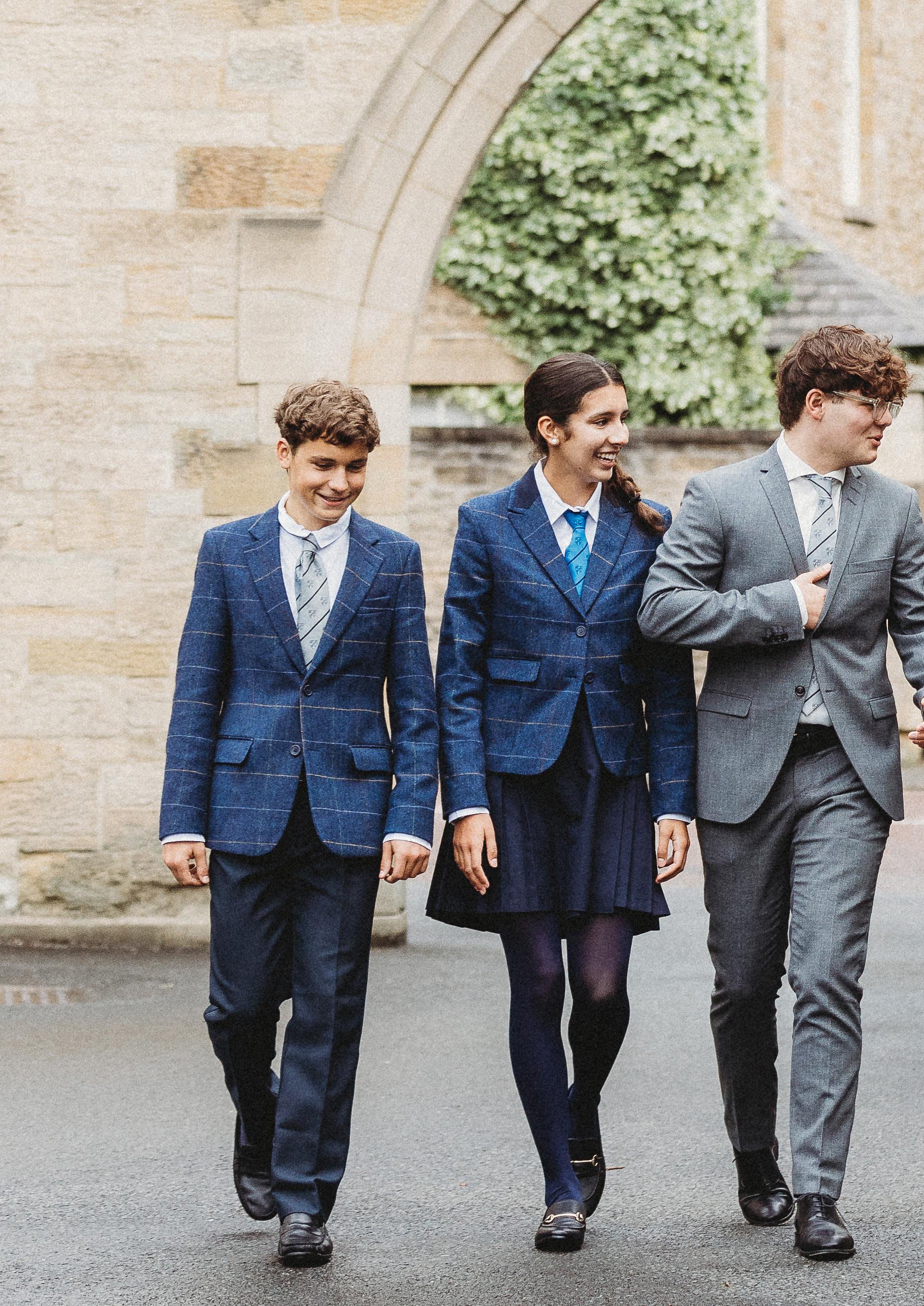

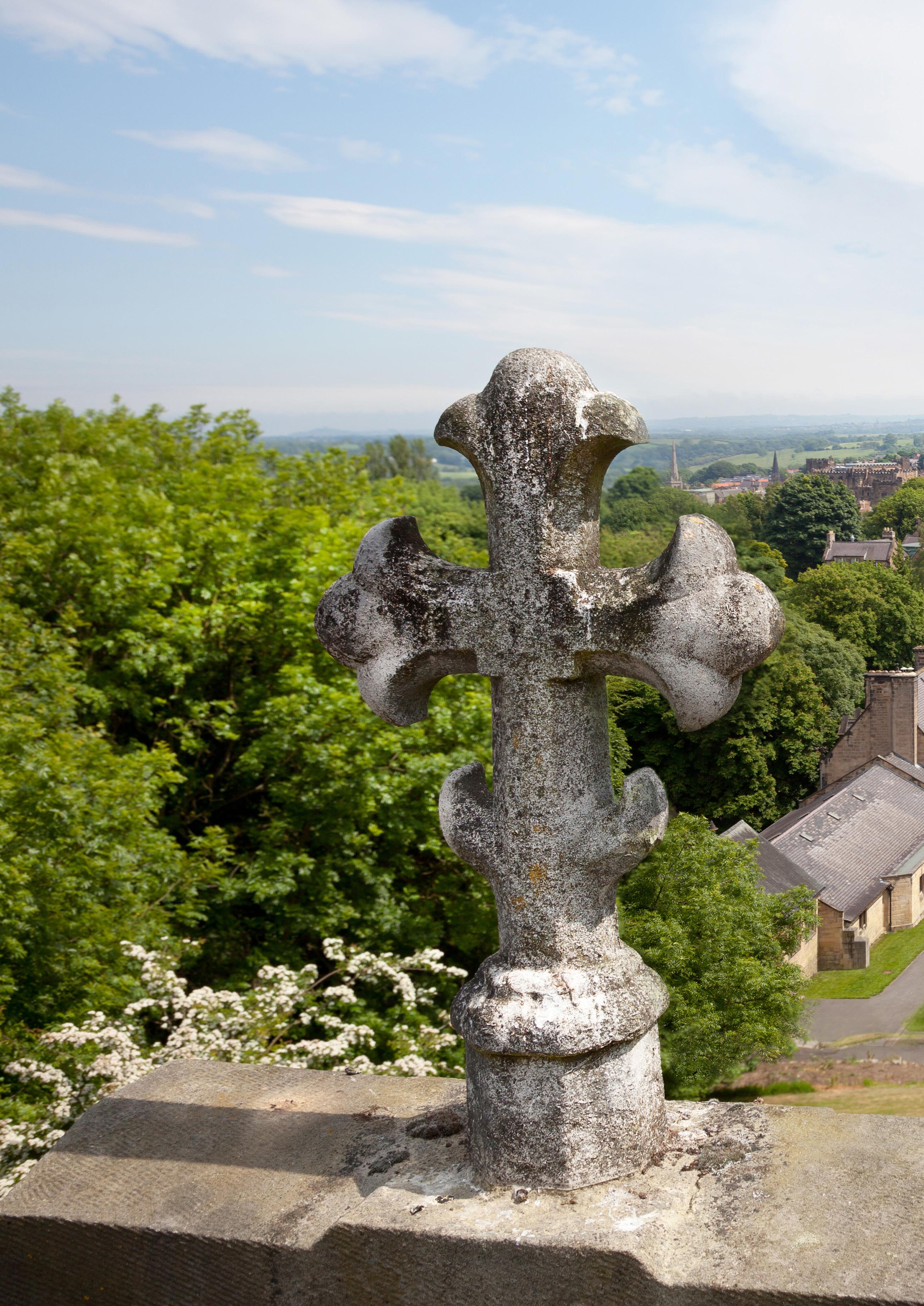
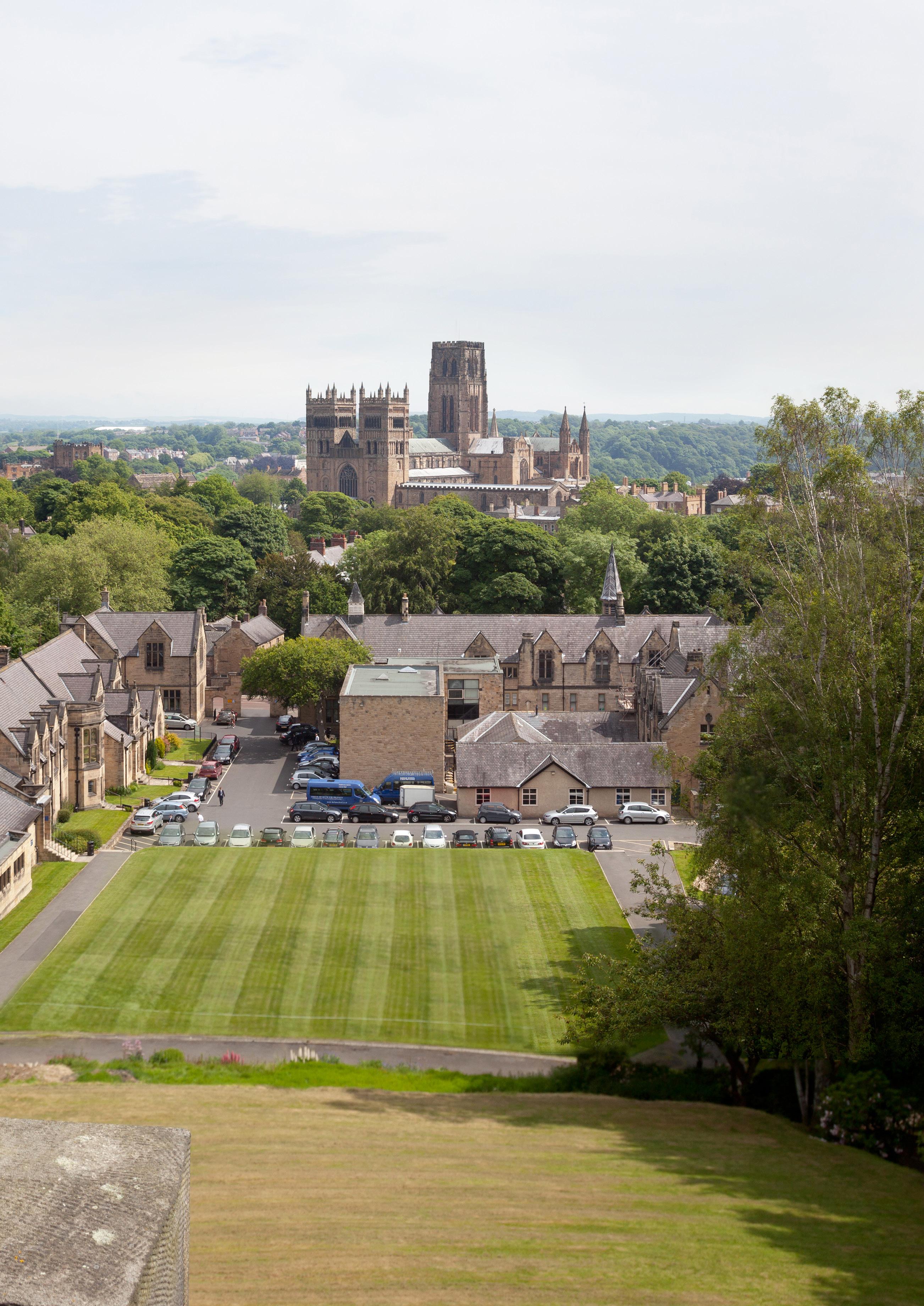
Further Information
Further Information
For further information on any matters concerning Year 7-9 contact:
For further information on any matters concerning Scholarships contact:
Telephone: 0191 731 9270
Telephone: 0191 731 9270
email: admissions@dcsf.org.uk
email: admissions@dcsf.org.uk
www.dcsf.org.uk
www.dcsf.org.uk
